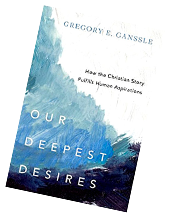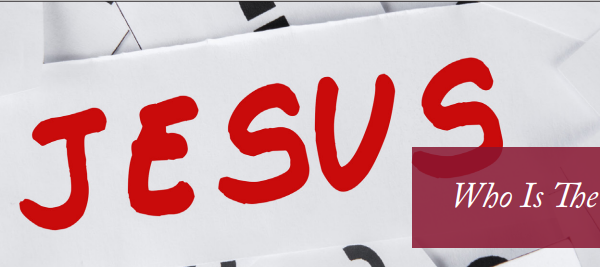Back to series
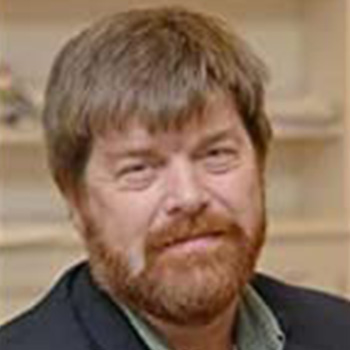

Recommended Reading:
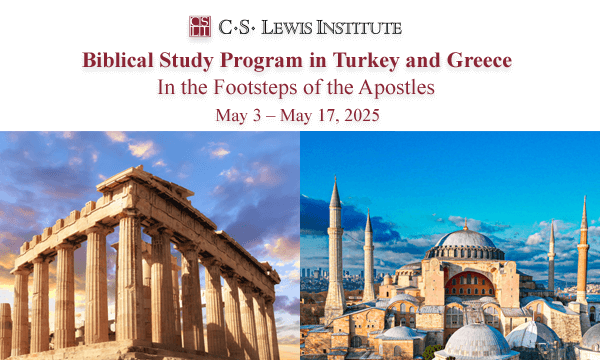
Download or Listen to Audio
The Christian Story and our Longing for Relationship
Click here to open a Print - Friendly PDF
Calculus does not make sense to me. It never has. I remember showing my instructor my midterm and asking him, “Can you look at question 3 and tell me what I did right?” Even when I got something right, it made no sense. If I had worked harder, it might have turned out differently. But I didn’t work at it. I never learned it. Almost forty years later, all I remember is the feeling of confusion. But Calculus is not the only thing that does not make sense to me.
One summer I stood in a long line at a Deli. As I waited I took a few strings of penny licorice out of the jar on the counter and ate them. This was in 1982, and the licorice did cost a penny a string! As I paid for my snacks, I said, “Here’s three cents for the licorice.” The teen-aged girl behind the counter exclaimed about my honesty. Why would I pay for something I could have eaten for free? It never occurred to me to take the licorice without paying. Stealing candy does not make sense.
Calculus and shoplifting fail to make sense in very different ways. Calculus is too complicated. Shoplifting is different. It does not make sense to me, but I understand it exactly. It does not make sense because I cannot fit it into what I know about who I am and what I want my life to be.
 Each human being has a project. In fact, we all share the same project. This project is to navigate the world in the best way we can. Each of us proceeds with the aim of being and doing certain things but not others. We aim to do the things that make sense to us and to avoid the things that don’t. We navigate the world in light of our commitments and assumptions about what is good to do or to be.
Each human being has a project. In fact, we all share the same project. This project is to navigate the world in the best way we can. Each of us proceeds with the aim of being and doing certain things but not others. We aim to do the things that make sense to us and to avoid the things that don’t. We navigate the world in light of our commitments and assumptions about what is good to do or to be.
The assumptions by which we navigate our lives include more than what we believe. They include our desires or our loves. It is not only what I think is true that will affect how I pursue the best life. It is also what I most want. What kind of person do I want to be? That question reveals my deeper desires. Augustine wrote that when it comes to our moral and spiritual well-being, what we want is actually more important than what we believe: “For when there is a question as to whether a man is good, one does not ask what he believes, or what he hopes, but what he loves.”1 The root of moral and spiritual failure, Augustine thought, is that our loves are disordered. Our moral failures are not a result of our loving bad things. Rather, we love good things, but we love the less important things more than the most important things. Whenever I am honest, I recognize that I sometimes act in this way.
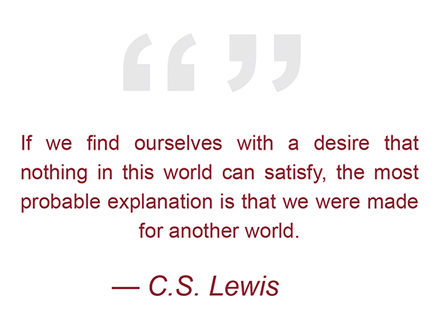
Each person, then, has her own collection of beliefs and loves. Although they may seem to be tangled together with no conscious structure, a little self-reflection can lead us to recognize that there is a rough order to our loves and beliefs. Certain loves take precedence over others.
When we experience a conflict in our beliefs and desires, we strive for resolution. We resolve the conflict by revising either the content of our beliefs and desires or by revising the ordering of our beliefs and desires. We will often change our beliefs to fit our loves. We are less ready to change our loves to fit our beliefs.
At the heart of each person is the very deepest region of the self. I call this region, for lack of a better term, our core identity. A person’s core identity involves the deepest sense the person has of who she is and who she longs to be. What constitutes our core identity is rarely in the forefront of our minds. Often it takes patient self-reflection and work to identify the contours of one’s core identity.
One’s core identity often serves as the fulcrum for changes in one’s other values. Deep value change will usually occur along the contours of core identity. When I find that I have reversed the order of my loves, I can usually trace the change to some aspect of my core identity. The function of one’s core identity as a fulcrum is rarely conscious. Rather, we find certain values or beliefs simply gaining or losing their grip on us. If we trace this reordering carefully, we will find some deeper love or some sense of who we are that is at work.
Our core identities are formed as we inhabit certain belief and value structures over time. We begin to inhabit beliefs and values at a very young age. Our sense of being loved and of being secure has a great impact on our deepest sense of who we are. As we grow, we develop patterns of ordering our choices, other beliefs, values, goals and interests around these deeper ones. Each time we adapt our surface beliefs and values to our deeper ones, the deeper ones become even more deeply entrenched. As a result, we become more fixed as a certain kind of person. In a sense, we habituate ourselves into our core identities by the practice of changing our other beliefs and values in light of them.
Given this account, we can see how it is possible to undergo changes in our core identities. This kind of change will often result from the experience of dissonance. We may determine that some belief or desire that functioned within our core identity ought to be revised in light of other beliefs and desires. We may recognize that we have a deeply ingrained habit that we want to change. This habit may be revealed in our relationships with others or our thoughts about our own lives. Beginning such change will be difficult, in part, because we are changing against the contour of our deeper values. We have to re-habituate ourselves to inhabit a new ordering of values and beliefs.
This brief description of our beliefs, loves and identities is not meant to be a comprehensive moral psychology. It is meant to help us think about what it means for something to make sense to us. The thought that I ought not to steal a few pieces of candy or cheat on my taxes is one that makes sense to me in the manner I am exploring here. It fits in neatly with things I believe and value deeply. The connection or “fittingness” of integrity with my core identity explains why honesty makes sense to me.
The claim that my book explores is that the Christian story makes sense of our deepest longings. That is, the story that Christianity sets forth fits well with the things we value most and with the kinds of people we want to be. The Christian story has the resources to ground these desires. It can explain why we have the aspirations we do, and it can show that these aspirations connect with what is real. In this article, I will develop one aspect of this fittingness. That is, the centrality of relationships to our well-being.
“Lord, what fools these mortals be!”2 So Puck sizes up the dynamics of the human drive for love. Shakespeare’s A Midsummer-Night’s Dream is a delightful romp through the anxieties and vicissitudes of romantic attachment. The fates of the main characters are controlled by Oberon, the king of the fairies. He capriciously casts spells to change their attachments, seemingly for his own entertainment. The one constant feature that runs through the mishaps or the characters is their intense passion to be loved.
 Things have not changed in the centuries that have passed. The quest for love is as constant as ever. The enduring fascination with the novels of Jane Austen testifies to our love affair with love. Popular culture is a celebration of this obsession. Popular music overflows with the themes of love won and love lost.
Things have not changed in the centuries that have passed. The quest for love is as constant as ever. The enduring fascination with the novels of Jane Austen testifies to our love affair with love. Popular culture is a celebration of this obsession. Popular music overflows with the themes of love won and love lost.
More subdued in its approach is the eighth book of Aristotle’s Nicomachean Ethics, in which he treats friendship. He begins by acknowledging that friendship is “an absolute necessity in life.”3 While he acknowledges that some friendships are based on utility and pleasure, these kinds are only incidental. They are easily dissolved, and they tend to last only as long as the utility or the pleasure lasts. In contrast, “[t]hose who wish good things to a friend for his own sake are friends most of all, since they are disposed in this way towards each other because of what they are, not for any incidental reason.”4 This kind of friendship is lasting. He describes friendship as a state rather than a feeling. Friendship, then, involves a settled disposition to act for the good of the friend. While being loved is a universal and strong desire, “friendship seems to consist more in loving than in being loved.”5 Love, Aristotle claims, is the virtue of friendship. It is what makes a friendship more than incidental. Love makes a friendship excellent.
A Midsummer-Night’s Dream, Jane Austen, and The Nicomachean Ethics are worlds apart in their aims, their literary approaches, and their philosophical outlook. Thinking about the range of such works, however, prompts a fundamental question about human nature and experience. What is it about us that makes us crave relationship? Our relationships are, without doubt, the most central aspects of our lives. Perhaps nothing on earth contributes more to our well-being than the experience and quality of our interpersonal relationships. Nothing can cause as profound a pain as loss or hurt on the relational level. Why are our relationships so central?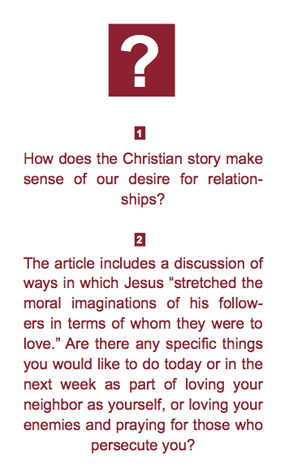
A little reflection helps us see that our capacity for relationship is connected with what it means to be a person. In relationships, we recognize one another as selves rather than as objects. We see that other people have their own experiences, joys, and sorrows. As a result, we feel empathy, and we enter into the hopes and sorrows of another. These pursuits require understanding, observation, and the ability to communicate. We use language and employ our intellect in our relationships. Ultimately, it is because we are persons that we can enter into and enjoy the richness of relationships.
Because we are persons, it is not just that we can enter into relationships, it is also the case that we must enter into relationships. Even if one cannot fail to have relationships, one may be impoverished with respect to the relationships one has. Relational poverty can be a result of a series of choices, or it can be a matter of unfortunate circumstances. From the poignant picture of loneliness in the song “Eleanor Rigby”6 who was “buried along with her name,” to the isolation of Dickens’ character, Scrooge, we see that relational poverty is human poverty. We are sad for those trapped in loneliness that is beyond their control, and we pity those who choose it for themselves. The financially successful businessman like Scrooge who has lost his family and friends on the road to success is a standard symbol of human failure.
Relationships are indeed central to our lives. This fact raises the question of where relationships fit in our picture of reality. Christianity holds forth a story that captures this centrality. The Christian story is relational at its core. The human capacity for relationship is a reflection of the divine capacity for relationship. This fact is one way in which human nature is a reflection of the divine nature. The features of our personhood that allow for and require human relationships are explained and grounded in the Christian picture of God as a personal being.
Human relationality, however, connects with Christianity in even deeper ways than the fact that we reflect God’s own capacities for relationship. In the Christian story, the most fundamental reality is intrinsically relational. This claim is part of the idea of the Trinity in the Christian view of God. Christianity teaches that there is one God in three persons. Each of the divine persons is of the same divine substance and has the same divine essence as the other divine persons. Thus, there is one being. The persons of the Trinity, however, have their own individual personhood. This claim is the reason that Christians talk of God in terms of “three in one.” The Trinity is a distinctive contribution of Christianity. It is not shared by deism or the other major monotheistic religions. While various theisms hold that God has the capacity for relationship, it is a claim distinct to Christianity that relationality is part of God’s very nature.
There are many mysterious elements in the concept of the Trinity, as we should expect in the nature of God. We will not raise these puzzles or try to defend the doctrine. Instead, we are interested in how this piece of the Christian picture of reality connects with our relationality. The notion that God exists as Trinity brings unique resources to our thinking. God eternally lives in relationship. Relationality, then, is as deep as the deepest feature of reality. It is not a feature that was added to reality as an afterthought. The most fundamental reality is not simply personal but a community of three persons in relationship.
Furthermore, the purpose for which God created us did not have to do with a lack in God’s character or experience. God did not have to wait to create us in order to complete the divine relational capacities. Rather than creating us to meet a need on God’s part, God created us for our own good. Creation is motivated by an overflowing of the love inherent in the very nature of God. That relationality reflects the deepest contours of reality resonates with our own experience of the centrality of relationship in our own lives.
 Another theme that emerges from reflection on God’s intrinsic relationality concerns the manner of the relations within the divine being. The manner of relation in the Trinity is one of mutual submission and cooperation. Theologian Hans Urs von Balthasar writes of “God’s eternal self-emptying in the mutual self-surrender of the Persons of the Trinity.”7 Each divine person lives in eternal self-giving to the other divine persons. The mode of relationship is one of loving and giving. It is each self pouring himself out for others. Love is directed away from self and towards the other. Mutual love and giving are the deepest marks of the origin of relationship.
Another theme that emerges from reflection on God’s intrinsic relationality concerns the manner of the relations within the divine being. The manner of relation in the Trinity is one of mutual submission and cooperation. Theologian Hans Urs von Balthasar writes of “God’s eternal self-emptying in the mutual self-surrender of the Persons of the Trinity.”7 Each divine person lives in eternal self-giving to the other divine persons. The mode of relationship is one of loving and giving. It is each self pouring himself out for others. Love is directed away from self and towards the other. Mutual love and giving are the deepest marks of the origin of relationship.
This feature of the relations within the Trinity captures our deep intuitions about the way relationships ought to be. We know that the best of our relationships are characterized by mutual giving. We all long for relationships in which we are known and accepted and supported, while we in turn know, accept, and support the other. There is a deep fittingness, then, between what we grasp about the best in human relationships on the one hand and the manner of relating among the persons of the Trinity on the other. God’s intrinsic being exemplifies what we were made to be.
Once we reflect on the quality of relationship that characterizes God’s own being, we are not surprised that the content of Christian ethics centers on love and service to others. Jesus continually stretched the moral imaginations of his followers in terms of whom they were to love. He named the second most important law, the law to “love your neighbor as yourself.” (Matthew 22:39) When someone asked him, “And who is my neighbor,” (Luke 10:29) Jesus broke down the walls that had been erected to confine love. It is clear that the one who raised this question was seeking to limit the kind of people he was obligated to love. In response Jesus told the story about a man who was regarded as an outcast. This man crossed racial, religious, and cultural barriers to help a person in need. Jesus did not answer the question of the identity of our neighbor. Calculating whom it is that we are supposed to love, as if we can draw these kinds of boundaries, is to miss the point altogether. Rather, we should live as this man lived. We are to be neighbors who reach out to anyone in need.
Jesus pushed his followers even further: “You have heard that it was said, ‘You shall love your neighbor and hate your enemy.’ But I say to you, Love your enemies and pray for those who persecute you.” (Matthew 5: 43, 44) The self-giving love that expressed God’s own nature among the persons of the Trinity and to us is to be our model of how we ought to love, not just our family and friends, but those who are strangers and those who may be out to hurt us. To be honest, we have rarely seen anyone consistently come close to meeting the challenge of these commands. When we do witness such love, we are humbled and awed. Self-sacrifice is hard, but it makes sense that this would be our ethical standard because self-giving reflects both the internal love within the Trinity and the external love God demonstrates toward us.
In the Christian story, the fundamental relational reality is marked by loving submission and by self-giving. The fact that relationality plays this fundamental role in the human psyche is not surprising if Christianity is true. After all, relationality is at the core of the universe. In this way the Christian story grounds and explains what it is we care about most, and why we care so deeply.
This essay is adapted from Gregory E. Ganssle’s Our Deepest Desires: How the Christian Story Fulfills Human Aspiration (Inter Varsity Press, 2017).
|
Notes:
|

Gregory Ganssle
ProfessorGregory Ganssle, is Professor of Philosophy at Talbot School of Theology at Biola University. He is the author of several books, including A Reasonable God: Engaging the New Face of Atheism and Thinking About God, and he is the editor of God and Time. Greg graduated from the University of Maryland in 1978. He earned a Masters of Arts in Philosophy from the University of Rhode Island (1990) and a PhD. in Philosophy (1995) from Syracuse University where his dissertation on God's relation to time won a Syracuse University Dissertation Award.

Recommended Reading:
Gregory E. Ganssle, Our Deepest Desires: How the Christian Story Fulfills Human Aspirations (IVP Academic, 2017)
As human beings, we are created with desires. We all long for meaningful relationships, lives that reflect goodness, engagements with beauty, and the freedom to pursue our lives with integrity. But where can our restless hearts find fulfillment for these universal longings? Philosopher and apologist Greg Ganssle argues that our widely shared human aspirations are best understood and explained in the light of the Christian story. With grace and insight, Gans — and fulfills — our deepest desires. It is only in the particular claims of the Christian faith, he argues, that our universal human aspirations can find fulfillment and our restless hearts will be at peace.
 COPYRIGHT: This publication is published by C.S. Lewis Institute; 8001 Braddock Road, Suite 301; Springfield, VA 22151. Portions of the publication may be reproduced for noncommercial, local church or ministry use without prior permission. Electronic copies of the PDF files may be duplicated and transmitted via e-mail for personal and church use. Articles may not be modified without prior written permission of the Institute. For questions, contact the Institute: 703.914.5602 or email us.
COPYRIGHT: This publication is published by C.S. Lewis Institute; 8001 Braddock Road, Suite 301; Springfield, VA 22151. Portions of the publication may be reproduced for noncommercial, local church or ministry use without prior permission. Electronic copies of the PDF files may be duplicated and transmitted via e-mail for personal and church use. Articles may not be modified without prior written permission of the Institute. For questions, contact the Institute: 703.914.5602 or email us.
-
Recent Podcasts
A Welcome Change in Apologetics
by Randy Newman on April 18, 2025Apologetics has for a long time, been motivated...Read More
-
Resisting God – Dr. John W. Taylor’s Story
by Jana Harmon, John Taylor on April 11, 2025
-
The Defiance of Grace in the Ministry of Christ
by Dane Ortlund, Aimee Riegert on April 4, 2025
-
Recent Publications
Who Is The Real Jesus?
by John R.W. Stott on April 1, 2025The 21st century has provoked many conversations and...Read More
-
Does the Modern World Face a Crisis of Meaning?
by Cameron McAllister on March 1, 2025
-
The Impact of Technology on the Christian Life
by Tony Reinke on February 14, 2025
0
All Booked
0.00
All Booked
0.00
All Booked
18008
GLOBAL EVENT: 2025 Turkey & Greece Study Program – In the Footsteps of the Apostles
https://www.cslewisinstitute.org/?event=global-event-2023-biblical-study-program-of-israel&event_date=2025-05-03®=1
https://www.paypal.com/cgi-bin/webscr
2025-05-03

Next coming event
Days
Hours
Minutes
Seconds
GLOBAL EVENT: 2025 Turkey & Greece Study Program – In the Footsteps of the Apostles
On May 3, 2025 at 3:00 pmat İstanbul, TürkiyeSpeakers

Gregory Ganssle
Professor
Team Members

Gregory Ganssle
ProfessorGregory Ganssle, is Professor of Philosophy at Talbot School of Theology at Biola University. He is the author of several books, including A Reasonable God: Engaging the New Face of Atheism and Thinking About God, and he is the editor of God and Time. Greg graduated from the University of Maryland in 1978. He earned a Masters of Arts in Philosophy from the University of Rhode Island (1990) and a PhD. in Philosophy (1995) from Syracuse University where his dissertation on God's relation to time won a Syracuse University Dissertation Award.



